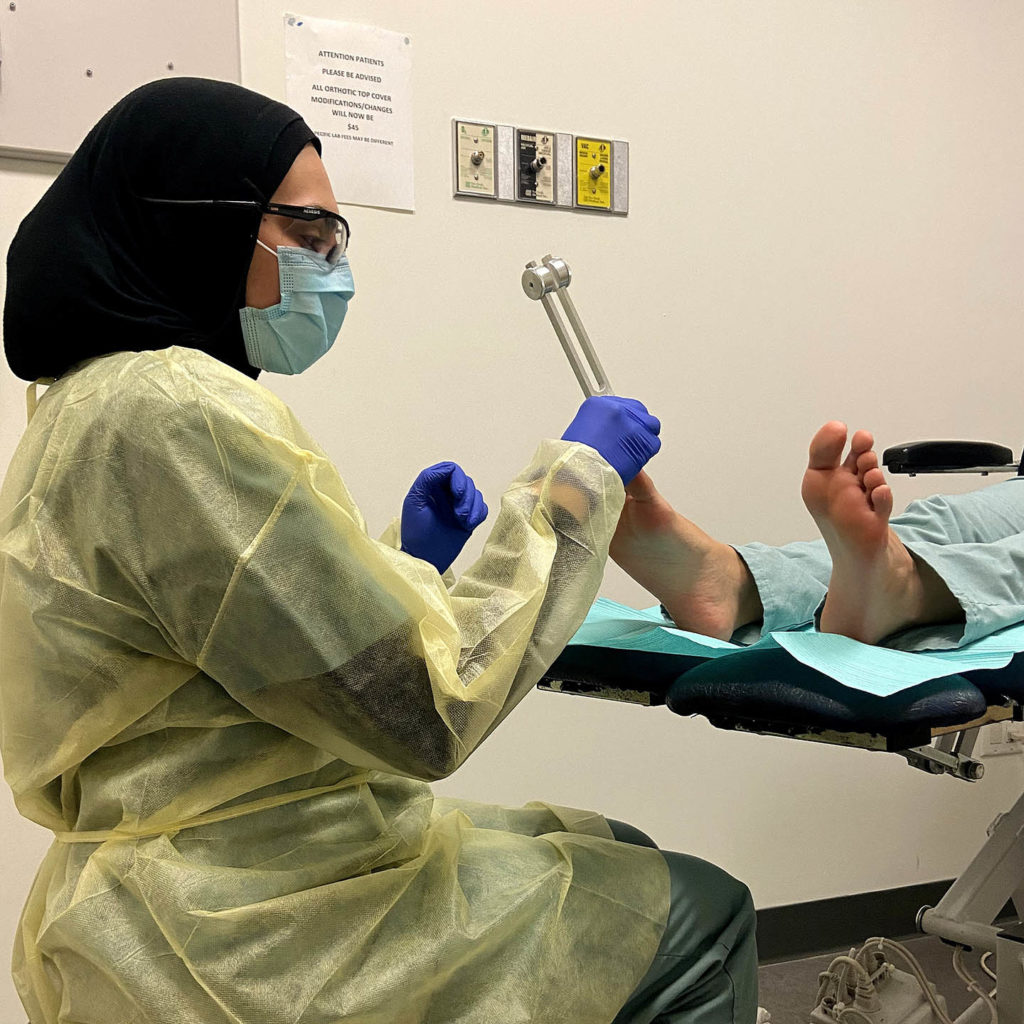Best foot forward: Reskilling human resources for high-risk foot care
Diabetic foot complications are a complex health issue that requires specialized health care skills. Patients with diabetic foot ulcers are at risk of amputation if treatment is not timely and appropriate. However, a shortage of chiropodists and podiatrists to treat these ailments necessitates the involvement of other health professionals.
Other foot care providers include doctors (i.e. surgeons, infectious disease specialists), nurses, wound specialists, personal support workers, physiotherapists and others. The delivery of relevant skills to the patient was weighed as more important than the health care provider’s profession, according to the International Working Group on the Diabetic Foot (IWGDF).
Retraining and upskilling these providers can help meet the growing demand for evidence-based diabetic foot care, reduce the number of lower limb amputations, and address a growing need in the workforce.
Due to varied training and licensing requirements among health care providers, standards of professional competence in diabetic foot care delivery must be developed so that providers attain the theoretical and clinical skills for the provision of safe and effective treatment. The displacement of health care providers during the pandemic, as well as the increased reliance on telemedicine, present a unique opportunity to dramatically improve health and labour market outcomes in diabetes foot care.

The Future Skills Centre is investing $2.8 million in this four-year project proposed by UHN and the Michener Institute of Education at UHN. Organizers will examine the human resources and health care capacity needed to prevent or reduce lower limb amputation rates among people with diabetes. It is part of a broader collaborative effort to improve the management, treatment and outcomes of persons with diabetes as well as to enhance the efficiency of the health care system.
The initiative includes the Conference Board of Canada’s VBHC Canada, in partnership with Diabetes Action Canada and CorHealth. It strives to examine best practices and create standardized evidence around effective care pathways for the prevention and treatment of diabetic foot ulcers, as well as to link health care costs for this patient population to outcomes (clinical and patient-reported). The initiative is being linked to four existing provincial programs focused on preventing and reducing lower limb amputations for persons with disabilities.
Evaluation Strategy
This project will be evaluated using tools and approaches aligned with its goals, context, and stage of development. The evaluation will focus on generating the right evidence at the right moment to move the intervention forward. Read more about our evaluation strategy.





